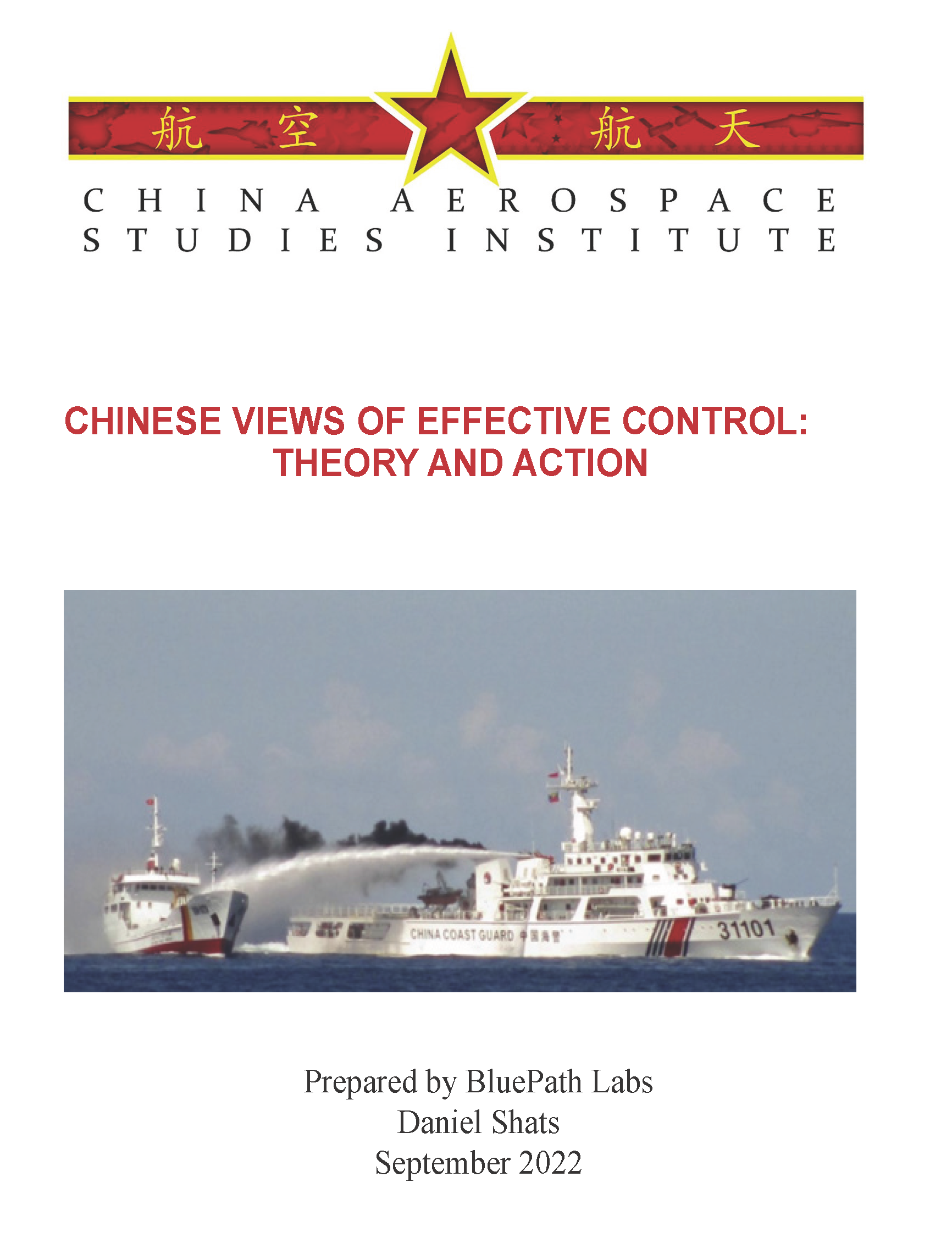Effectively deterring China or, in the case of a conflict, successfully bringing the conflict to a close will require deep understanding of China’s approach to and priorities in conflict. A term with evolving significance for these issues is “effective control” [有效控制], a concept most prominently discussed in the 2013 edition of the PLA’s Academy of Military Science’s (AMS) Science of Military Strategy (SMS). The authors of the text argued that effective control should be regarded as an important part of "active defense in the new era.” This means that in addition to winning wars, emphasis should be placed on containing war, managing peace, and deterring enemies.
Effective control is composed of the three core concepts of “establishing posture” during peacetime (using generally non-violent means to shore up China’s strategic weaknesses relative to adversaries, maintain stability on China’s periphery, and curb Taiwanese “separatism”); preventing and controlling crises (with the dual goals of preventing escalation into war while also “seizing opportunities” to advance Chinese interests); and controlling war situations when war does erupt (seeking to win as quickly as possible, at minimal cost, while containing escalation in intensity, scope, and other dimensions). Effective control also stresses thorough preparation and “seizing the initiative” to ensure victory in any conflict. The concept is highly relevant to understanding China’s strategic and operational behavior in most conflict scenarios as well as during peacetime, and helps to elucidate why the PLA may take actions that appear to be escalatory.
Click here for the full report
